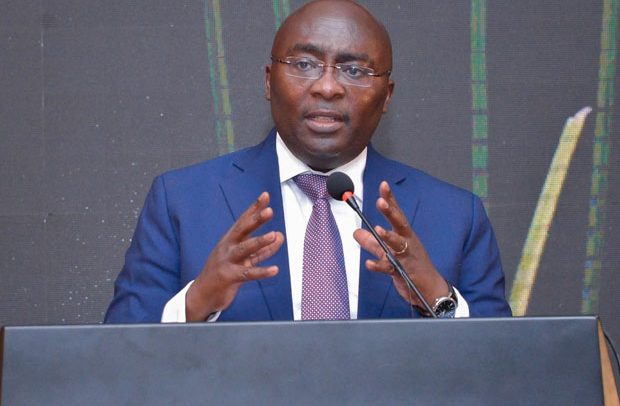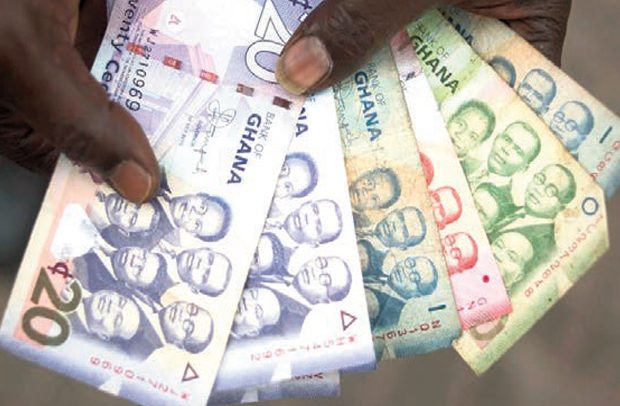
Ebenezer Chike Adjei NJOKU [email protected]
Businesses in the country are facing a significant hurdle in their quest for growth, banks still favouring investment in government securities above extending credit to the private sector, fresh data from the Bank of Ghana (BoG) has shown.
During a press briefing for the 117th Monetary Policy Committee (MPC) meetings, Governor Ernest Addison revealed that compared to February 2023, credit extended to businesses and individuals has plummeted from 29.5 to 5.1 percent in February 2024. This translates to a significant decrease in the availability of funds for businesses to invest, expand and create jobs.
He acknowledged that the trend is a result of the preference by banks to invest in government securities. This is supported by the data, which reveals a surge in bank investments in short-term Treasury and BoG instruments.
Year-on-year growth in these investments reached 67.6 percent in February 2024 – with a value of GH¢53.6billion – compared to a much lower 36.9 increase the previous year.
The governor further highlighted the real-world impact of this trend. When adjusted for inflation, private sector credit growth dips into negative territory, contracting by 14.7 percent. This means that businesses have access to less purchasing power in real terms, effectively hindering their ability to invest and grow.
“Credit to the private sector by banks continued to remain weak. As at February 2024, private sector credit growth was 5.1 percent compared with a 29.5 percent growth recorded in February 2023. In contrast, as at February 2024, banks’ investments in GoG and BoG instruments stood at GH¢53.6billion – an increase of 67.6 percent year-on-year, compared with an increase of 36.9 percent for the corresponding period of 2023. In real terms, credit to the private sector contracted by 14.7 percent, relative to a 15.3 percent contraction recorded over the same comparative period in February 2023,” he explained.
Analysts remain concerned about the potential ramifications of this credit crunch stating that limited access to credit can act as a handbrake on economic growth as businesses struggle to expand, invest and create jobs.
While they believe banks, on the one hand, might be exhibiting risk aversion due to economic uncertainty and rising non-performing loans ratio – which reached 24.6 percent in February 2024; and businesses, on the other hand, being cautious due to muted consumer demand or a dearth of attractive investment opportunities, the high-interest rate regime remains a cause for concern.
Despite a consistent dip in the Ghana Reference Rate (GRR) since the turn of the year, it remains above 30 percent – 30.45 percent effective March 6, 2024, to be precise. Similarly, the benchmark Monetary Policy Rate (MPR) was maintained at 29 percent during the meetings over modest inflation concerns.
Last week, 91-day and 182-day Treasury bills closed at 26 percent and 28.5 percent respectively, while the yield on the 364-day T-bill reached 29.1 percent. This is in addition to a hike in the Cash Reserve Ratio (CRR) for banks with loan-to-deposit ratios below 55 percent.
“While the liquidity measures may be positive for the inflation outlook, we believe the liquidity squeeze may likely slow the pace of yield decline,” Databank said in a note after the MPC meeting.
Nonetheless, the central bank said its surveys indicate moderate improvements in business sentiments.
“While the Consumer Confidence Index remained broadly unchanged from the January survey, business confidence sentiments improved further as firms indicated meeting their short-term targets and expressed optimism about company and industry prospects. Results from the confidence surveys were broadly aligned with the observed trend in Ghana’s PMI,
which also signalled an improvement in business conditions. The PMI rose marginally
above the 50.0 benchmark to 50.2 in February 2024, and from 48.4 in January,” Dr. Addison stated.
In response, the BoG announced a series of measures aimed at addressing excess liquidity in the market.
For instance, effective April 2024, the BoG will implement adjustments to the Cash Reserve Ratio (CRR) for banks, structured to incentivise increased lending to the private sector.
Under the new policy framework, banks with loan to deposit ratios above 55 percent will be mandated to maintain a CRR of 15 percent. Banks with loan to deposit ratios ranging between 40 percent to 55 percent will face a CRR requirement of 20 percent.
Those with loan to deposit ratios below 40 percent will be subject to a higher CRR of 25 percent.
Dr. Addison underscored the necessity for these measures, highlighting the prevailing trend where many banks prioritize investments in government bills or Bank of Ghana bills over lending to the private sector.
The measures form part of a strategic move to bolster lending to the private sector, a primary objective for the country’s economic growth, the governor explained.
The post Private sector faces credit squeeze as banks continue to favour gov’t debt appeared first on The Business & Financial Times.
Read Full Story





















Facebook
Twitter
Pinterest
Instagram
Google+
YouTube
LinkedIn
RSS